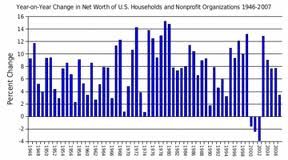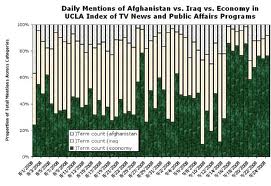 Then, I want to move to futures markets and forward markets. A forward contract is a contract made between two parties for execution in the future. Generally, these are called over-the-counter contracts because they’re not arranged through exchanges. We also have standardized contracts that are traded on exchanges and they’re called futures contracts.
Then, I want to move to futures markets and forward markets. A forward contract is a contract made between two parties for execution in the future. Generally, these are called over-the-counter contracts because they’re not arranged through exchanges. We also have standardized contracts that are traded on exchanges and they’re called futures contracts.
The futures contracts were invented in Japan in the 1600s at Osaka and they were developed for the rice market in Japan. They were uniquely Japanese until pretty much the nineteenth century and then they were copied all over the world and are now very important.
I’m going to talk about one futures market that I have been instrumental in developing. I’ve been working with the Chicago Mercantile Exchange to create a futures market for single-family homes, which is sort of my connection to the futures industry. Of course, there are many futures markets that we’ll talk about. They’re very interesting to me and I wonder why the business community isn’t more aware of them. A futures market has a prediction going out years into the future of what every financial variable will be doing, so you can see the future in a sense through the futures prices. It’s not always correct to think of it that way. We have to get into the theory of futures markets. In many cases, that is not the right way to think about futures prices, but there are very important futures markets that – In the next lecture, I want to talk about the various kinds of futures markets that matter.
We have a stock index futures market and notably we have an oil futures market. The oils futures market is very significant because it represents the price of energy on dates into the future. We can now see the price of oil going out years into the future. We’ve just hit $100 barrel price of oil, but what does that mean? Does that mean we’re going to live in a world with $100 oil? Well, not if you look at the futures market, which is in backwardation now and it’s predicting major drops in the price of oil.
Then, I want to talk about options markets. This is getting close to the end of the course. An option is the right to buy something. Typically, we think of it as a stock option. An option is a contract that says you can buy so many shares of a company. The options have been traded for several decades starting with the Chicago Board Options Exchange. But, now there are many options exchanges. We have prices of options that change minute by minute. Now, what do these changes and these prices mean? The options are a very useful technology for managing risks and I think that we’ll see a rapid over the next few decades, we’ll see rapid expansion in the scope of options contracts traded on the exchanges.
Finally, for the last lecture for this semester, I want to pull this together and talk about one of the themes that, is summarized in terms of a theme of this course, which is the democratization of finance. Finance used to be a very esoteric field that only a few people in London and Paris and other world centers understood – Amsterdam and other places where financial technology emerged, but it’s becoming democratized. With each year that goes by, the concepts of finance are being applied more broadly and involving more and more people. With electronic technology, it’s becoming more economical to offer sophisticated financial services to everyone. This is something that we’re seeing. I think the subprime crisis that is the current financial crisis highlights this very well. What does subprime mean? Well, I think it stands for the general population. The subprime mortgage market was bringing people into the mortgage market who in prior decades would not have been involved, would not have had any mortgage.
The problem, of course, with the democratization of finance is that if you raise the participation in financial markets, then you bring in people who are less and less knowledgeable, less and less understanding of concepts of finance and less capable and more vulnerable to exploitation. So, the democratization of finance is, I think, the ultimate mission that I find central to this course, but it brings with it dangerous and hazards and we have to think very carefully about how we do it.
Finance and Insurance: Powerful Economic Forces Pt 8







